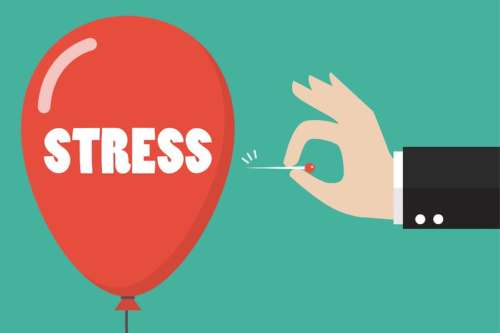
Everyone is affected by stress. There really is no escaping it. It could be from external stressors like work or your family, physical stressors like illness or obesity or psychological stressors like anxiety or depression. Regardless of the source, stress is meant to be a warning sign that something is wrong. Unresolved stress can lead to a whole host of problems, which is part of why the International Stress Management Association has assigned each April as Stress Awareness Month. Let’s look deeper into this phenomena and how you can mitigate it’s effects.
Some of the most common side effects related to stress include digestive upset (diarrhea, constipation, nausea, heartburn), tachycardia, chest pain, insomnia, low libido, weakened immunity, teeth grinding, jaw clenching, sore muscles, headaches, racing thoughts, constant worry, pessimism, lack of focus and forgetfulness. Chronic stress can lead to severe diseases including heart attacks, migraines, strokes, heart disease, obesity, clinical depression, IBS, eating disorders and colitis. However, the reality is that stress doesn’t have to lead to these symptoms and it can be lessened and controlled.
Most people are aware that practices like meditation, yoga, proper nutrition, exercise, journaling, talking with friends and deep breathing can all be helpful when combatting stress. But not everybody is familiar with utilizing East Asian Medicine to deal with stress. When it comes to stress, there are several tools in the toolbox for East Asian Medicine practitioners to utilize.
Acupuncture is the most commonly known modality in EAM. And while it may seem counterintuitive that being poked with needles can bring about relaxation, that’s exactly what happens. Acupuncture works on areas of the brain known to reduce sensitivity to both pain and stress, while deactivating the analytical brain and promoting a relaxed state of both mind and body.
Studies show that acupuncture also decreases serum levels of cortisol, while increasing acetylcholinesterase. Cortisol is the hormone that spikes when a person feels stressed and acetylcholinesterase is an enzyme that stops the excitation of a nerve after it has fired. If cortisol is elevated and acetylcholinesterase is decreased, then a person feels stressed out. Acupuncture treatments can bring balance to these two substances in the body, thus relieving feelings of stress.
When we are constantly in the fight or flight mode that stress creates, our sympathetic nervous system becomes taxed. Acupuncture helps us relax and shift into our parasympathetic, or rest and digest, nervous system, which increases hormones associated with a positive mood. This important shift changes our neurochemistry, increasing our happy hormones.
Acupuncture encourages the release of gamma aminobutyric acid (GABA), a relaxation amino acid, serotonin, epinephrine and dopamine, which are all happy hormones or enzymes. This helps combat negativity and pessimism that is frequently common when we feel stressed.
Another common reason that people feel stressed is pain. When there is pain present, people may be unable to achieve daily tasks, which can lead to added stress. Acupuncture stimulates the production of endogenous opioids that affect the autonomic nervous system. These endogenous opioids are in the body to help modulate and regulate pain perception. They can also help reduce inflammatory cytokines, leading to less inflammation throughout the system and less pain.
If you’re a little needle-phobic, consider using the aforementioned ways to reduce stress. Deep breathing, exercise and a healthy, balanced diet are all great ways to fight both daily and chronic stress. Something as simple as inhaling for seven seconds, pausing for 2 seconds and then exhaling for seven more seconds, is a technique that has been proven to reset the nervous system. Exercise releases nervous energy, while a diet rich in fruits and vegetables can help to balance many of the hormones mentioned previously that can lead to tension.
This April, why not get a handle on your stress? Come in for a quick 30 minute Stress Buster acupuncture treatment. Turn off the tv or the device and go for a walk whenever possible. Instead of grabbing a candy bar, grab a piece of fruit or a handful of veggies. And most importantly, B R E A T H E. No matter how you approach it, recognizing and finding ways to handle your stress can be life saving and the only person stopping you is you.

